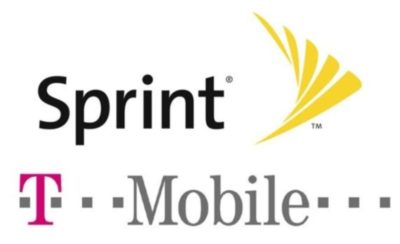Reaction to the news that after making concessions, FCC Chairman Ajit Pai now believes the merger of T-Mobile and Sprint is in the public interest, was strong and varied Monday.
FCC Commissioner Brendan Carr supported the decision, “because Americans across the country will see more competition and an accelerated buildout of fast, 5G services.”
But Commissioner Jessica Rosenworcel expressed “serious doubts” about all of the promised developments.
“I’m reviewing the conditions that have been proposed by the carriers and blessed by my colleagues,” she tweeted.
Randolph May, president of The Free State Foundation, a free-market think tank, described the deal as good for consumers and business. “There is an imperative that the U.S. lead the world in the race to deploy 5G networks, the super-fast next-generation of wireless networks. And there is also an imperative that high-speed broadband be accessible more ubiquitously to rural Americans,” he said in a statement.
But Gigi Sohn, who was a counselor to former FCC Chairman Tom Wheeler and a distinguished fellow at the Georgetown Law Institute for Technology Law & Policy, disagreed. Sohn called the merger “still anticompetitive and anti-consumer,” in a statement. “The companies have made a handful of promises on 5G, rural buildout and in-home broadband that are speculative, not specific to the merger and completely unenforceable.”
The Rural Wireless Association tweeted that T-Mobile’s past behavior and new conditions signal it doesn’t have the time and/or resources to provide rural America with the 5G coverage it promises. Saying it’s “extremely disappointed” in Chairman Pai’s and Commissioner Carr’s support of the merger, the RWA urged the Department of Justice and “states attorneys general to stand up for rural carriers and rural America by blocking” the transaction.
NTCA–The Rural Broadband Association, agrees with the RWA. “T-Mobile has had sufficient spectrum and resources to deploy mobile networks in rural communities for years, but it has consistently declined or neglected to do so for even 3G or 4G services. Yet the company now promises to deliver in just a few years’ time services and technologies at a scope and scale never before seen, in rural areas that are in many cases lacking or just beginning to see the kind of fiber infrastructure necessary to realize anything remotely close to what is being promised,” stated NTCA CEO Shirley Bloomfield.
Bloomfield continued: “Unlike T-Mobile, Sprint has been a willing partner to smaller rural providers, helping to ensure that consumers enjoy seamless mobile service across networks in rural and urban areas alike. In contrast, T-Mobile has offered no assurances that it will honor or extend current roaming or spectrum leasing agreements. The loss of this partnership will be devastating to rural wireless consumers.”
The RWA, satellite TV provider DISH, the Communications Workers of America, and others formed a coalition to oppose the transaction, arguing it would lead to higher prices for consumers and make the market less competitive. CWA warned the merger would guarantee the loss of thousands of U.S. jobs.
Addressing the potential job losses post-merger, an FCC official said the build-out, “will lead to more construction jobs” than if the deal doesn’t go through.
May 21, 2019





Reader Interactions